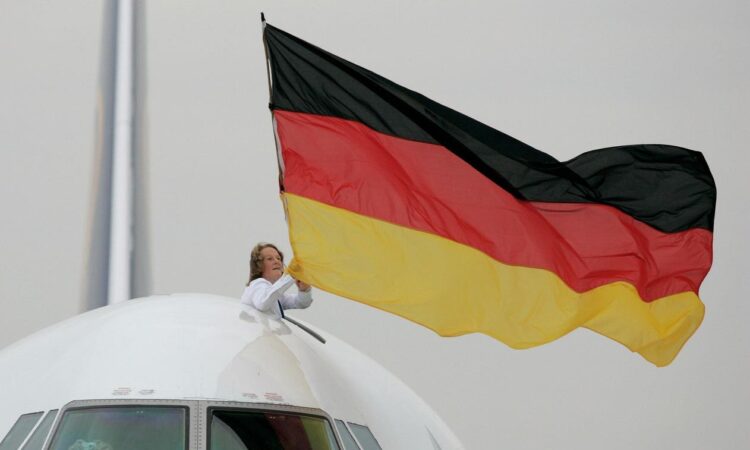
Bongarts/Getty Images
It’s a rare thing to happen, but Germany now looks like the sick man of Europe, a phrase previously often used to describe Britain.
The health of the business sector dropped significantly in June, according to recent data. The Ifo Business Climate index for Germany, which measures the health of the commercial sector, registered 88.5 in June, down from 91.5 in May. Higher numbers show economic strength, whereas lower ones show a weakening of the economy.
This sign of weakness comes hot on the heels of the manufacturing Purchasing Managers Index (PMI) released last week, which also showed a dramatic fall. It fell to 41 in June from 43.2 in the previous month. Figures less than 50 show contraction; this latest data point is the 11th straight drop.
These economic figures usually correlate closely with GDP growth, according to a recent analysis from London-based Capital Economics. The Capital report explains the situation as follows:
- “Overall, the surveys for June leave us comfortable with our forecast for German GDP to fall again in Q2. And with stagnating real incomes, rising interest rates, and weakening external demand set to keep weighing on activity, we expect further contractions in Q3 and Q4.”
In other words, 2023 will be a year when the Geman economy contracts in every quarter. It matters because Germany is by far Europe’s largest economy and is often viewed by analysts as the workhorse of the European Union. Or put another way, with German economic growth, the EU won’t do nearly as well as it could.
TradingEconomics forecasts a slight improvement for Germany starting next year.
The current weakness is partly due to Germany’s historic heavy reliance on cheap energy from Russia to power its mighty manufacturing base. Obviously, that was upended when Russia invaded Ukraine on February 24, last year.
The situation was exacerbated by a decision to decommission it’s nuclear power plants in 2011. Of course, that left the country exposed to far higher energy prices than most analysts expected.
In the wake of last year’s invasion and a blisteringly hot European summer European natural gas prices jumped to 339 euros ($373) per megaWatt hour last summer up from 67 euros in late December 2021. It has subsequently dropped to 33 euros, according to data from TradingEconomics.
Meanwhile, while much of the rest of the free world is disconnecting with China, Germany is doing what it can to keep a positive trade relationship between the two countries.
A recent report from Eurasia Group explains the situation as follows:
- “German Chancellor Olaf Scholz appears determined to continue his comparatively business-friendly course vis-à-vis China after the much-anticipated Sino-German government consultations on 20 June.”
While that approach may disappoint some in Washington D.C., it will certainly warm the hearts of Germany’s business leaders who are doing a lot of business with China.
“Berlin is unlikely to move significantly from its firm focus on economic opportunity,” the Eurasia report states. In other words, it may be business as usual for a while, at least.
Follow me on Twitter or LinkedIn. Check out my website or some of my other work here.






